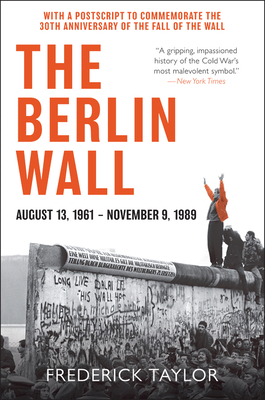Expedite your nonfiction book discovery process with Readara interviews, summaries and recommendations, Broaden your knowledge and gain insights from leading experts and scholars
In-depth, hour-long interviews with notable nonfiction authors, Gain new perspectives and ideas from the writer’s expertise and research, Valuable resource for readers and researchers
Optimize your book discovery process, Four-to eight-page summaries prepared by subject matter experts, Quickly review the book’s central messages and range of content
Books are handpicked covering a wide range of important categories and topics, Selected authors are subject experts, field professionals, or distinguished academics
Our editorial team includes books offering insights, unique views and researched-narratives in categories, Trade shows and book fairs, Book signings and in person author talks,Webinars and online events
Connect with editors and designers,Discover PR & marketing services providers, Source printers and related service providers

The Berlin Wall: August 13, 1961 - November 9, 1989
History > Europe - Germany
- Harper Perennial
- Paperback
- 9780062985880
- 8 X 5.3 X 1.4 inches
- 0.88 pounds
- History > Europe - Germany
- (Single Author) Asian American
- English
Readara.com
Book Description
This vivid account of the Wall and all that it meant reminds us that symbolism can be double-edged, as a potent emblem of isolation and repression became, in its destruction, an even more powerful totem of freedom. -- The Atlantic Monthly
NOW WITH AN UPDATED EPILOGUE 30 YEARS AFTER THE FALL OF THE WALL
On the morning of August 13, 1961, the residents of East Berlin found themselves cut off from family, friends, and jobs in the West by a tangle of barbed wire that ruthlessly split a city of four million in two. Within days the barbed-wire entanglement would undergo an extraordinary metamorphosis: it became an imposing 103-mile-long wall guarded by three hundred watchtowers. A physical manifestation of the struggle between Soviet Communism and American capitalism that stood for nearly thirty years, the Berlin Wall was the high-risk fault line between East and West on which rested the fate of all humanity.
In the definitive history on the subject, Frederick Taylor weaves together official history, archival materials, and personal accounts to tell the complete story of the Wall's rise and fall.
Author Bio
Frederick Taylor is the author of six major works of twentieth-century history. He was born in Aylesbury, United Kingdom, and educated at local state schools and Aylesbury Grammar School. Awarded a scholarship to Oxford University, he read History and After graduating he pursued research at the University of Sussex, where he was awarded a Volkswagen Studentship and travelled widely in East and West Germany researching a thesis on the German far-right before 1918. He has since worked as a publisher, a translator of fiction and non-fiction, a novelist and scriptwriter. Meanwhile, he edited and translated The Goebbels Diaries 1939-1941 and several German works of popular history.
Since the publication of his first bestselling books, Dresden Tuesday 13 February 1945 in 2004, and The Berlin Wall in 2007, Frederick has lectured widely and appeared on expert panels, in venues as various as the Hay-on-Wye Festival, the Edinburgh Book Festival (2004 and 2006), the Chalke Valley History Festival, the World War II Experience Centre Series of Lectures at Chelsea Hospital, the Oshkosh Air Show in the USA, the Chinese University of Hong Kong, the Göttingen Festival, and at Dresden Town Hall, where he delivered the keynote lecture (in German) at the Hannah Arendt Institute commemorating sixty years since the bombing of the city.
Frederick has participated in BBC Radio’s Start the Week and Night Waves, and has also contributed to The Today Programme. A frequent contributor for television documentaries, most recently he has been interviewed in Berlin as an expert witness for the ZDF Two-Part programme on the Berlin Wall, Countdown Mauerbau-Mauerfall, and for a documentary on the bombing of Dresden, part of the upcoming Series Greatest Events of World War Two in Colour.
Dresden has been translated into ten languages and The Berlin Wall into fifteen, including Chinese. Exorcising Hitler, a dramatic account of the destruction and resurgence of Germany after 1945 (published in Germany as Zwischen Krieg und Frieden) appeared in 2010.
The Downfall of Money, the story of Germany’s nightmare of hyper-inflation in the 1920s, and its influence on the country’s future, was published in 2013 in Britain, the USA and Germany. Coventry Thursday 14 November 1940 was published to coincide with the 75th anniversary of the Luftwaffe’s notorious attack on the historic English industrial city in November 1940. Frederick’s latest book, 1939: A People’s History (The War Nobody Wanted), was released by Picador Publishing in June 2019.
It is currently being translated into German, Dutch, and Chinese, and will be published by WW Norton in the USA during the winter of 2019/2020. It details the reactions and fears of ordinary British and German people in the face of the slide to war, between the Munich Crisis of September 1938 and Hitler’s invasion of Poland a little under a year later.
Frederick has three grown-up children and lives with his wife, the American writer Alice Kavounas, in Cornwall, United Kingdom. He is a fellow of the Royal Historical Society of Great Britain.
Source: fredericktaylorhistory.com
Videos
No Videos
Community reviews
No Community reviews

